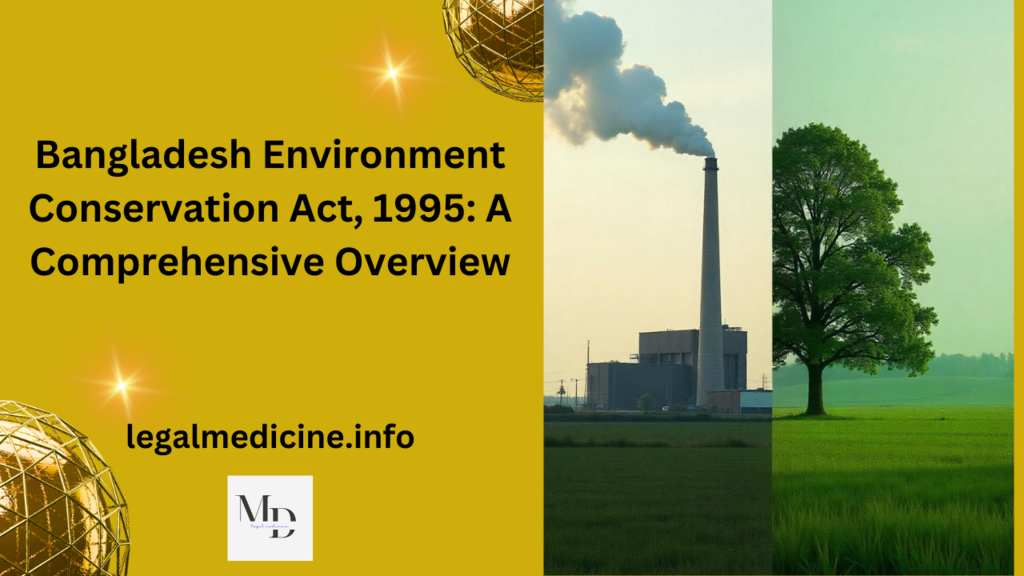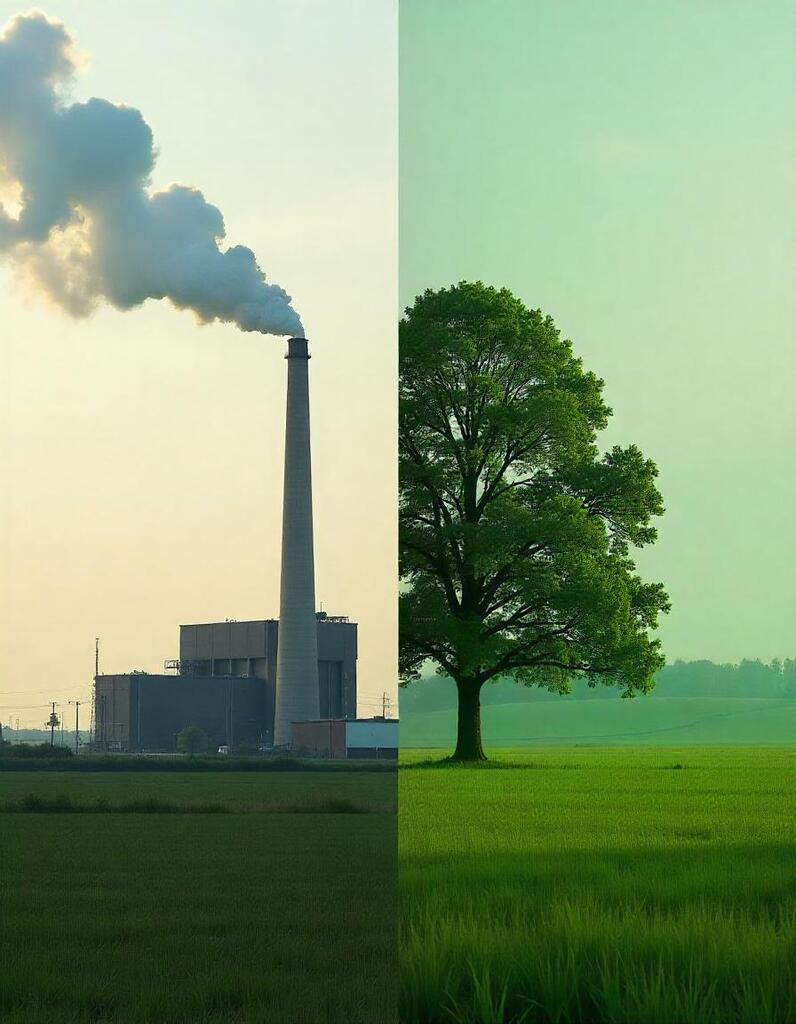Bangladesh Environment Conservation Act, 1995
Introduction

The Bangladesh Environment Conservation Act, 1995 (BECA, 1995) is a landmark legislation aimed at protecting and improving the country’s environment. Enacted to address increasing environmental degradation, this law provides a legal framework for conservation, pollution control, and sustainable development. This blog explores its key provisions, objectives, impact, and frequently asked questions.
Objectives of the Bangladesh Environment Conservation Act, 1995
The primary goals of BECA, 1995 include:
- Environmental Protection: Preventing pollution and ensuring ecological balance.
- Sustainable Development: Promoting responsible resource usage.
- Biodiversity Conservation: Safeguarding flora, fauna, and natural habitats.
- Environmental Compliance: Regulating industrial activities and waste management.
Key Provisions of BECA, 1995
BECA, 1995 outlines several critical measures to protect the environment:
- Declaration of Ecologically Critical Areas (ECA): The government can designate ecologically sensitive zones to prevent further degradation.
- Regulation of Industrial Pollution: Industries must comply with environmental standards to control pollution.
- Environmental Clearance Certificates: Businesses and factories require official permission before establishment and operation.
- Punitive Actions: Violations of environmental regulations can result in penalties, fines, or imprisonment.
- Waste Management Policies: The act promotes proper disposal and recycling to prevent pollution.
Impact of the Act on Environmental Conservation

Since its enactment, BECA, 1995 has played a crucial role in improving Bangladesh’s environmental landscape:
- Reduction of Industrial Pollution: Stricter enforcement of environmental guidelines has led to improved waste management.
- Preservation of Ecological Hotspots: Several ECAs, such as the Sundarbans and Cox’s Bazar, are now protected areas.
- Increase in Environmental Awareness: Citizens and businesses are more conscious of their ecological footprint.
- Sustainable Urban Planning: The law influences city planning, ensuring greener infrastructure and reduced pollution.
Challenges in Implementing BECA, 1995
Despite its success, several challenges hinder the full enforcement of BECA, 1995:
- Lack of Strict Enforcement: Many industries still violate environmental regulations due to weak monitoring.
- Limited Public Awareness: Rural populations often remain unaware of their environmental rights and responsibilities.
- Rapid Industrialization: Economic growth sometimes takes precedence over environmental concerns.
- Corruption and Bureaucratic Delays: Inefficient administration can lead to non-compliance.

Frequently Asked Questions (FAQs) about Bangladesh Environment Conservation Act
1. What is the purpose of the Bangladesh Environment Conservation Act, 1995?
The act aims to protect, preserve, and improve the environment while ensuring sustainable development.
2. How does the act regulate industries?
Industries must obtain an Environmental Clearance Certificate and follow pollution control measures.
3. What are Ecologically Critical Areas (ECAs)?
ECAs are regions declared environmentally sensitive where human activities are restricted to prevent degradation.
4. What penalties are imposed for violating BECA, 1995?
Violators face fines, imprisonment, or business closure depending on the severity of the offense.
5. How can the public contribute to environmental conservation?
Citizens can report environmental violations, adopt sustainable practices, and support eco-friendly businesses.
Conclusion about Bangladesh Environment Conservation Act
The Bangladesh Environment Conservation Act, 1995 remains a cornerstone of environmental protection in the country. However, stronger enforcement, public awareness, and policy updates are necessary for greater impact. By prioritizing sustainable practices, Bangladesh can achieve a healthier and greener future. For more details, visit the Department of Environment, Bangladesh.
